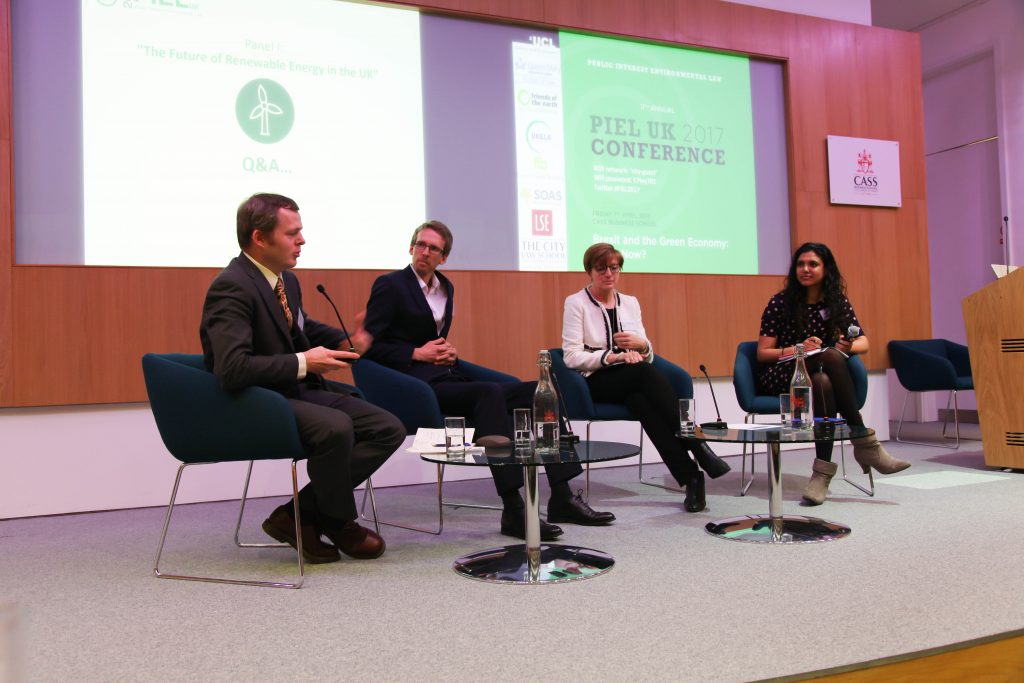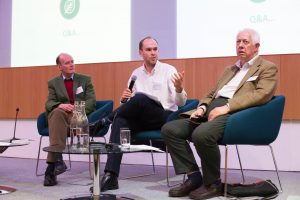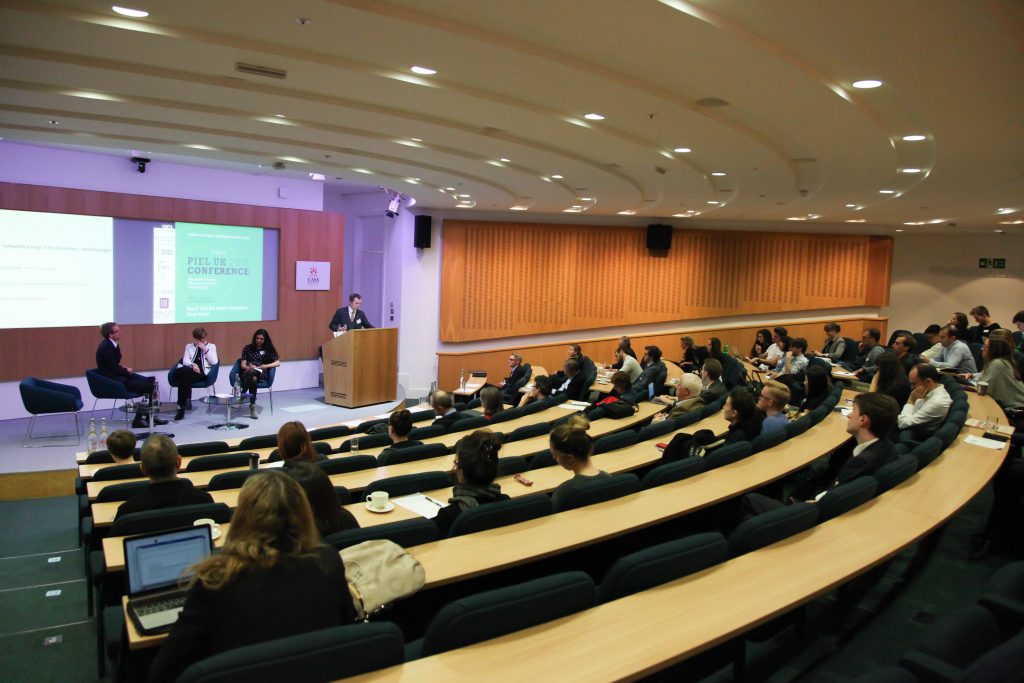Interested in Environmental Law? PIEL conference insights
On the 7th of April in the Cass Business School, the City Law School hosted the 11th annual conference of Public Interest Environmental Law (PIEL) UK. PIEL is a group comprising students from London’s universities with a shared interest in environmental law. The event is sponsored by educational institutions and interested parties, this year including SOAS, UCL, the City Law School, UKELA, Friends of the Earth (FOE), Francis Taylor Building, and the LSE Sustainable Futures Fund.

‘Brexit and the Green Economy: What Now?’ was the topic this year, and since much environmental law is founded on the Union’s legislation, just a week after the triggering of Article 50 was a good time to discuss it. The speakers were brought together on three panel discussions to compliment the two keynote speakers on the day. They came from backgrounds in universities, activist groups, and NGOs.
The first topic of the day was renewable energy’s future within the UK, chaired by Maria Carvalho from the LSE. Nina Skorupska, the CEO of the Renewable Energy Association stressed the importance of thinking beyond just electricity generation when energy is mentioned, and spoke about how Brexit could effect it in this way too. Sam Friggens, an energy economist with Mott MacDonald, looked at the issue from, as might be expected, an economical point of view. Issues surrounding financing difficulties in the future caused by withdrawing from European institutions were brought up, though he was more sanguine about the short term effects on the markets for renewables. Finally, Raphael Heffron from Queen Mary, University of London spoke about the regulatory environment, and looked at the steps that Ofgem is taking to change how they evaluate energy systems.
Second for discussion was air quality, chaired by Richard Macrory, of Brick Court Chambers and UCL. First up was Sam Lowe from Friends of the Earth, talking about the Great Repeal Bill white paper and its potential effects on environmental law. Then came Samantha Heath from the London Sustainability Exchange, speaking of the difficulties in tackling air pollution on a local scale, when much of it exists in cities, caused by rural visitors driving in, and the need for at least regional approaches to combat this. Finally, Daniel Keeler from the anti-Heathrow Expansion activist group, Rising Up, spoke about using political activity to affect change, in a break from the legalistic tone earlier in the morning.
After lunch, Nick Molho from the Aldersgate Group gave the first keynote speech. The Group describes itself as ‘an alliance of leaders from business, politics and civil society that drives action for a sustainable economy’, so it may come as no surprise that a review of environmental laws as a part of industrial strategy featured heavily in the speech. What will happen to the Common Agricultural Policy and how it will be included in the 25-year plan for the environment were discussed, as was whether the Circular Economy Package will be enacted in the UK, and what this will mean for businesses.
The second speaker was Larry Lohmann from the Corner House, who focussed on the underlying causes that led to Brexit, and how they might effect environmental policy in the future. He also used this point of view to analyse existing regulations, such as the Emissions Trading Scheme, and questioned the extent to which lawmakers were creating good policies, or transposing their ideas from other areas.

Thomas Lancaster
Professor Wyn Grant
Finally, there was the third panel on agricultural policy, chaired by Thomas Lancaster from the RSPB. Viviane Gravey from Queen’s University, Belfast asked whether the Common Agricultural Policy (CAP) is as bad as it is made out to be, or whether this is the result of member state bickering that would be replicated within the UK. She also spoke of how mismatching policies between the UK and the EU could work to close off export markets, and raised the issue of cross-border agriculture in Ireland.
Michael Cardwell from the University of York was next, talking about how to redesign the CAP. He said that there was no clear route to reform, echoing Viviane Gravey, and he suggested that other supranational regimes, such as the WTO may also need to be reformed in order to achieve a workable scenario. Finally, Wyn Grant, professor emeritus from the University of Warwick asked whether CAP should be centred around the substance of what is produced, noting that uplands farms and large arable operations are radically different in financial needs, though treated as though they were not. He also asked what would happen to pesticide regulation, questioning whether a more American approach would be adopted.
Thanks to GDL student Joseph Meethan for writing up the PIEL conference for Lawbore readers.

